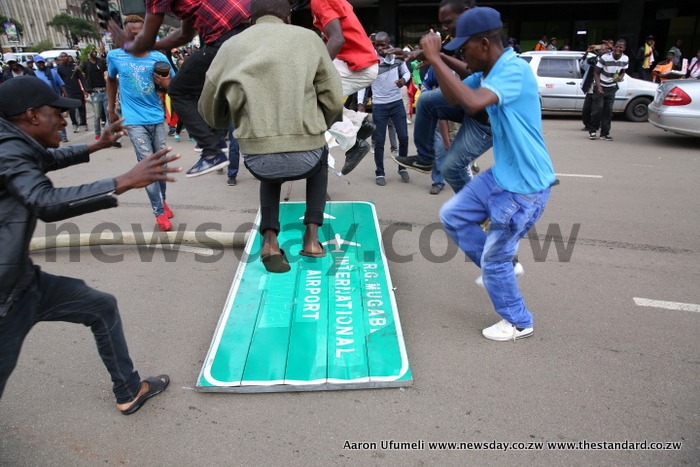Source: Army takeover: Investors adopt a wait-and-see approach – The Standard November 19, 2017
Turnover on the Zimbabwe Stock Exhange (ZSE) on Friday dropped by nearly 90% to $3,29 million as the political impasse that followed last week’s military takeover of government took its toll.
BY TATIRA ZWINOIRA/FIDELITY MHLANGA
The army last Wednesday put President Robert Mugabe under house arrest, saying it wanted to resolve Zanu PF squabbles that resulted in the expulsion of vice-president Emmerson Mnangagwa early this month.
Analysts said the reduced activity on the bourse could mean that investors had taken a wait-and-see approach.
“What is happening is a knee jerk reaction. Obviously, the people are calculating the risk involved in terms of the pricing.
“They are also anticipating a stabilisation of prices in light of the expected new dispensation of a government of national unity. As such, it is really much of a normalisation,” said Arnold Dhlamini, vice-chairperson of the Stockbrokers’ Association of Zimbabwe.
“You will start seeing buyers coming in at a lower trough. However, December will see prices going up to close the year because a lot of institutions are geared there at a higher price.”
He, however, said that if the political situation was not resolved quickly, the ZSE bubble would eventually explode as the market sought to self-correct.
On the parallel market, cash dealers used the political uncertainty as an opportunity to come out in numbers back into the central business district (CBD) as police went largely unseen.
The number of cash dealers had gone down on the streets after concerted police raids.
Now, with the return of these dealers, premiums for the greenback using real time gross settlement balances (RTGS) fluctuated from as low as 70% to as high as 100%. The premiums ranged between 50% and 90% on Friday.
However, premiums for the greenback through other means such as EcoCash or cash transactions using bond notes remained largely the same; much lower than RTGS rates.
Economist Prosper Chitambara said speculators were taking advantage of the situation to increase parallel market premiums something, which eroded investor confidence.
“What is happening at the moment has fed into the confusion and the uncertainty.We can’t separate economics from politics.
Obviously there are some people who want to take advantage of the situation,” he said.
“Due to uncertainty in the short term, we expect a further erosion of confidence and deterioration of key economic indicators such as black market premiums unless we resolve the political quagmire.”
Banks such as CBZ Bank, Standard Chartered Bank Zimbabwe, and FBC Bank, among others, during the week continued with their operations but Stanbic Bank on Wednesday and Thursday took a more cautious approach, closing at lunch time.
The retail sector that includes TM Pick n Pay, OK, Spar, and Food World, among others, did not see any significant drops in consumers and on some days saw increased business as some prepared for a the possibility of a negative aftermath from the political standoff.
Economist John Robertson said he was optimistic the aftermath of the political upheaval would usher in a new era full of property rights support, investment attraction and employment creation.
“We now have a chance to see reforms in giving land value, an indigenisation policy that will attract investment and create employment,” he said.
“Mind you, we have approximately 300 000 graduates coming in this year alone.
“It is my hope that we will have a new era, which promotes property rights and boosts our economy.”


COMMENTS